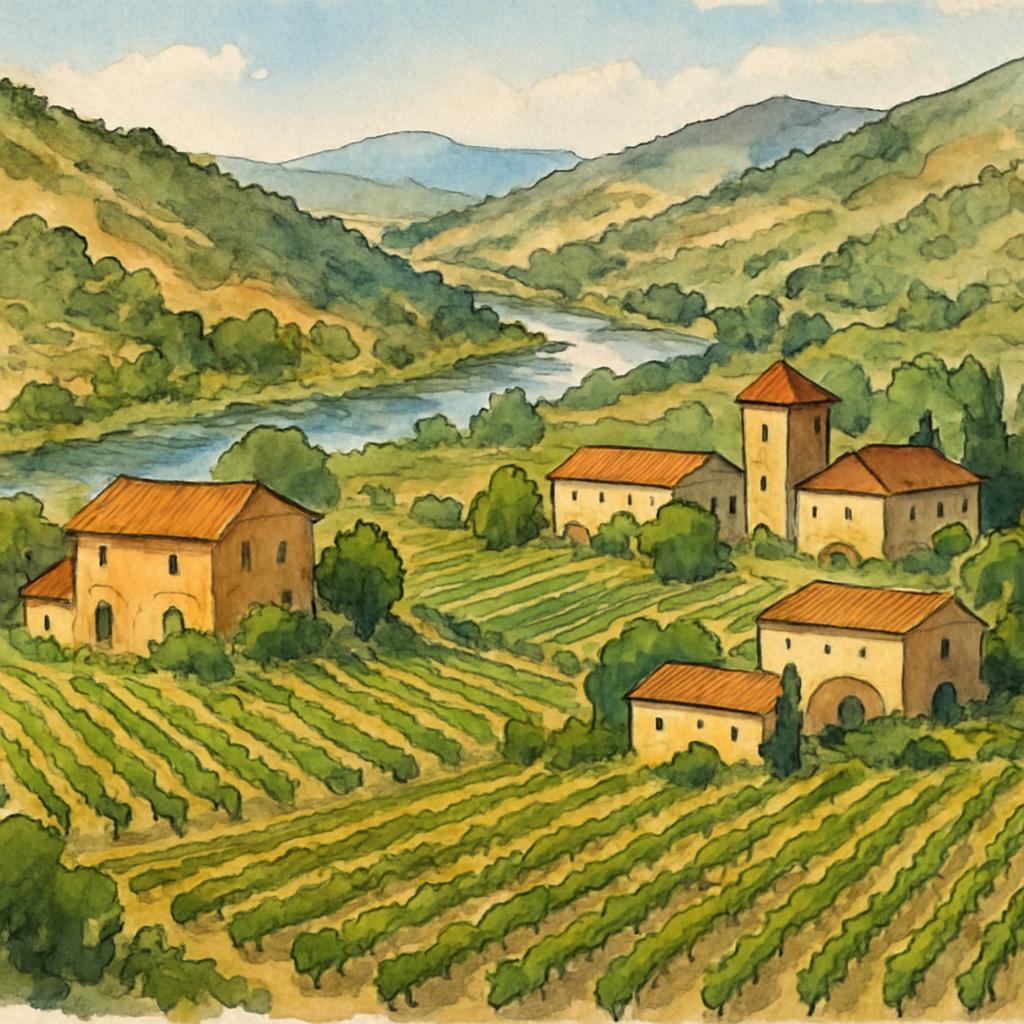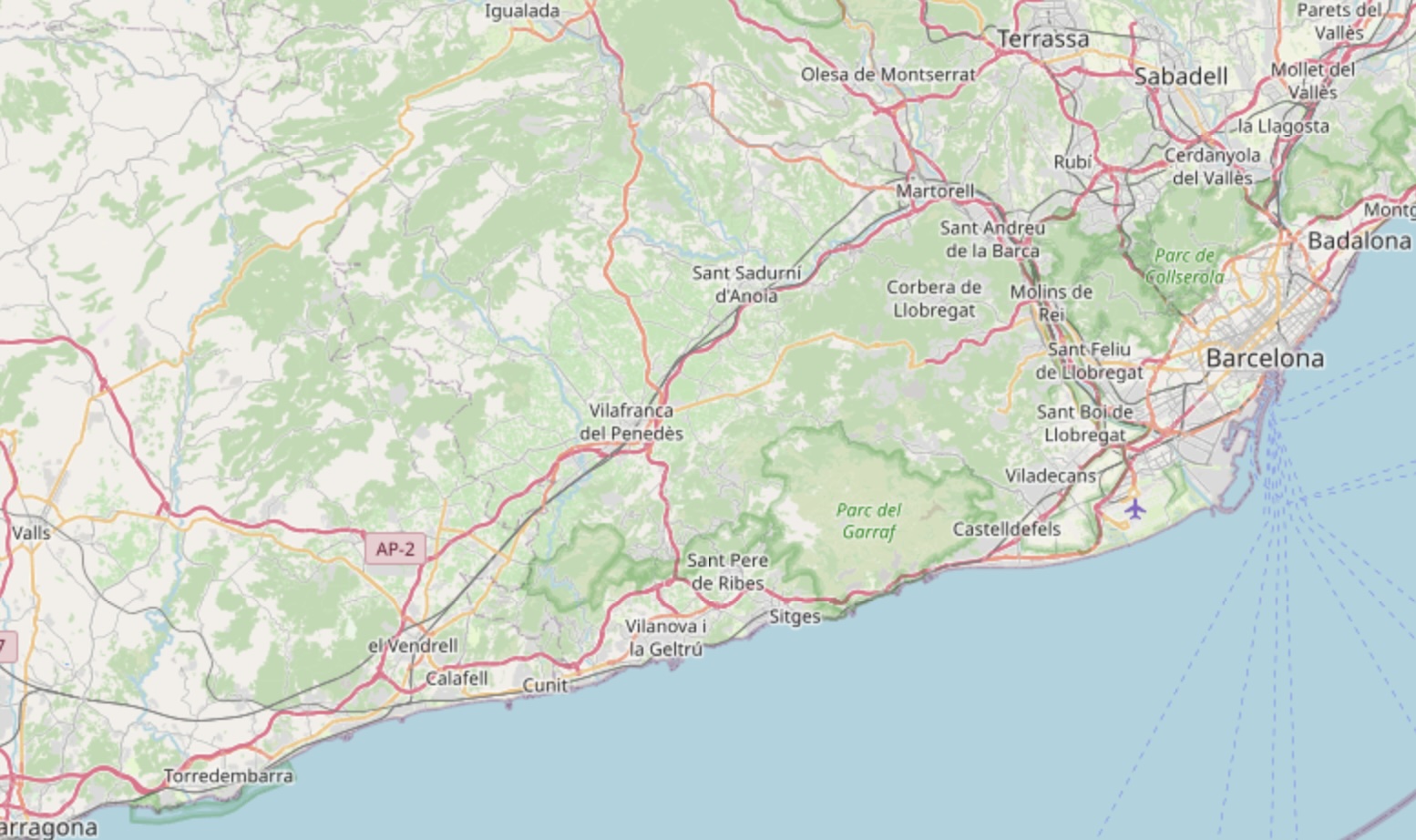Terroir of Anoia River Valley
The Anoia River Valley enjoys a Mediterranean climate, moderated by elevation and proximity to the sea. Summers are warm and dry, while spring and fall bring most of the annual rainfall of 450–600 mm. Cool coastal breezes at night preserve the grape's acidity and aroma, while cooler winters allow the vines a period of rest. The region benefits from an extended sunny growing season, promoting balanced fruit ripening.
The valley's diverse soils include well-drained alluvial loam and gravel on the valley floors, with calcareous clays and limestone on the slopes. Higher elevations offer shallow topsoils that encourage deep rooting, enhancing grape concentration. Vineyards face south or east, capturing the morning sun, while those at altitudes of 500–600 meters enjoy cooler temperatures, extending the growing season. This unique terroir contributes to wines with freshness and rich texture.
Notable Wineries in Anoia River Valley
The Anoia River Valley, within Catalonia's picturesque Penedès region, is home to several distinguished wineries that blend tradition with innovation. Here are a few noteworthy estates:
-
Raventós i Blanc (Sant Sadurní d’Anoia): This family estate is celebrated for its organic and biodynamic practices, producing artisanal sparkling wines that reflect the region's unique terroir.
-
Vins Pepe Raventós: A boutique project focusing on crafting exquisite white and rosé wines, emphasizing sustainability and balance.
-
Can Bonastre: A family-run winery offering a harmonious mix of sparkling and still wines, complemented by dining and lodging for a complete wine tourism experience.
-
Can Feixes: Known for its historical roots and organic farming, this estate offers a diverse range of sparkling and still wines, making it a popular stop for wine enthusiasts.
Sustainable Winemaking in Anoia River Valley
The Anoia River Valley in Catalonia's Penedès region is making significant strides in sustainable winemaking. Many vineyards here are committed to organic and biodynamic farming, focusing on eco-friendly practices to protect the region's diverse soils and unique terroir. Cover crops are strategically planted between vine rows to enhance soil health, boost biodiversity, and minimize erosion, especially on the valley's slopes.
Water conservation is a priority, with efficient irrigation systems employed only when necessary, and some premium sites relying solely on natural rainfall. In the cellars, energy-saving measures, such as temperature control, are standard practice. Additionally, wineries are increasingly using lighter glass and recycled materials, and some even generate their own renewable energy. These efforts not only preserve the environment but also ensure that the distinctive mineral and saline notes of the Anoia River Valley wines continue to delight wine enthusiasts.
Wine Tourism in Anoia River Valley
Wine tourism in the Anoia River Valley offers a rich exploration of Catalonia's winemaking heritage. Visitors can embark on wine tours that connect member wineries, revealing the art of crafting both sparkling and still wines. Rustic masias and modern cellars offer immersive tastings, highlighting the valley's unique terroir. Scenic routes through the countryside encourage leisurely bike rides, linking to nearby Penedès, while charming accommodations provide a serene retreat.
Throughout the year, the region hosts various events and festivals, such as harvest celebrations and regional wine fairs, fostering a deeper appreciation for local traditions. The valley's commitment to sustainability is evident in eco-friendly practices at numerous estates, ensuring the preservation of its distinctive mineral-rich wines. This blend of tradition, innovation, and natural beauty makes the Anoia River Valley a captivating destination for wine enthusiasts.



